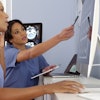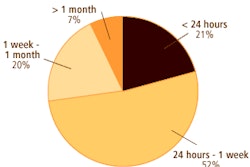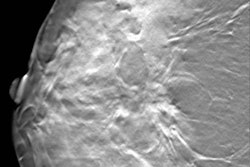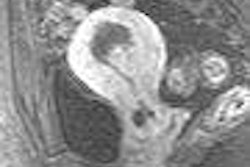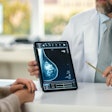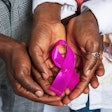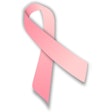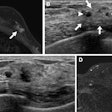In 2005, almost 300,000 women in the U.S. were likely to be diagnosed with breast cancer, according to the American Cancer Society. It's a safe bet that many of them sought answers and solace on the Internet, either by searching for details on treatment options or joining online support groups. So how accurate is Web-based information on breast cancer, especially when it's found in an unmoderated public forum? Researchers in Texas ran a check on one online forum to gauge the accuracy of information being disseminated.
"Professionals rely on the peer-review process to screen out false or misleading information," wrote lead author Aldo Esquivel and colleagues. "Similarly, open-source software relies on the user community for quality control. To our knowledge, the self-correction hypothesis has never been quantitatively tested in an unmoderated forum" (British Medical Journal, March 2, 2006).
Esquivel is a graduate student in the School of Health Information Sciences at the University of Texas Health Science Center in Houston. His co-authors are Dr. Elmer Bernstam, from the same institution, and surgical oncologist Dr. Funda Meric-Bernstam from the M. D. Anderson Cancer Center, also in Houston.
The authors chose to analyze the Breast Cancer Mailing List because it is not policed by healthcare professionals, they explained. The mailing list was established in 1994 and is administrated out of the Memorial University of Newfoundland in St. John's, Canada. The list currently has about 500 worldwide subscribers with an average of 310 distinct posters uploading messages on a monthly basis.
The authors reviewed messages from January to April 2005. First, Esquivel identified statements that could be considered false or misleading. Bernstam and Meric-Bernstam then confirmed that the statements were indeed false or recategorized them as correct.
Overall, the authors reviewed 4,600 postings from which Equivel identified less than 1% as offering false or misleading information. Of these 32 messages, 31% were confirmed to be false or misleading by the other authors.
The group concluded that "few postings on (the mailing list) contained false or misleading information." However, they did note that "the participants who had posted or corrected false or misleading information were among the historically most active users of the list." Fortunately, many of these false or misleadng statements were corrected by other users (sometimes within four hours of the information going live) or that the false statements were not likely to lead to harm, the authors added.
This is especially good news given how much patients rely on the Internet for health information. A study out of Temple University in Philadelphia tracked the experiences of newly diagnosed cancer patients who visited the National Cancer Institute's Cancer Information Service Web site.
The researchers found a significant relationship between Internet use by patients and perceived patient-provider relationship, treatment compliance, and feeling of self-sufficiency. "The results of this study show that patients who are newly diagnosed with cancer perceive the Internet as a powerful tool, both for acquiring information and for enhancing confidence to make informed decision," the authors concluded (Journal of Health Communication, March 2006, Vol. 11:2, pp. 219-236).
By Shalmali Pal
AuntMinnie.com staff writer
April 18, 2006
Related Reading
Ten questions patients should ask their MRI provider: Is this real or is it hype? February 15, 2006
Strong customer relationships: Building a competitive advantage, June 6, 2005
Making your practice known on the Web, December 23, 2002
Copyright © 2006 AuntMinnie.com


